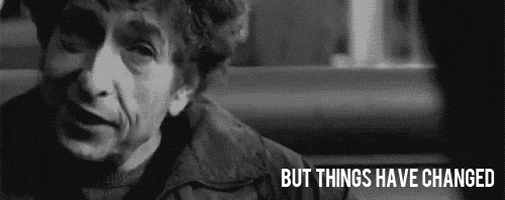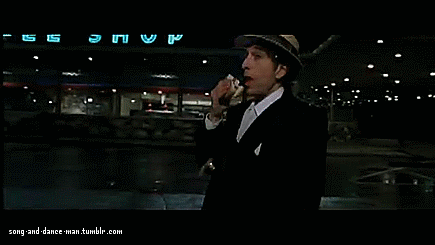Ozymandias' existentialism
07/06 2021

We're all going to die. That much is undoubtedly true. While this is a fact that many of us deny throughout our lives, we still cling to the notion that while we ourselves might die, we will live on through some other means; whether that is through our kids, the things that we create or what have you. This is a notion that I think is crumbling under the consequences of climate change. I have come to accept that we will probably not make it [importantly: as a civilization similar to the one we currently live in, as a species we'll be fine]. I think I was convinced after reading Facing Extinction, an article that I can highly recommend. Now this is a horrifying realization, and upon accepting it I was thrown into an existential tempest where I was seemingly dragged around like a ragdoll, pulled to the bottom of the void. There was something just so inexplicably depressing about realizing that everything that everyone has ever worked toward, worked on, was about to disappear forever. And even if not everything disappeared then at least everything that I could ever hope to achieve would most guaranteed never be thought about after I pass away. But then I started thinking about it, trying to gain control in the tempest, by swimming further down by my own control. Why is it so bad? I mean, rationally speaking, none of us are going to be remembered in the long run either way. Whether that is by the eventual heat death of the universe, our sun exploding, the four horsemen arising from a sinkhole in Alabama, or by climate change.
My cynical side instantly rebutted: "That's just an ab absurdum argument. While it is true that nothing lasts forever this is something that we have caused to ourselves. It isn't the same as something that we can't control." And that is true. We have done this to ourselves, just like the drinker who has caused cirrhosis to himself because he couldn't deal with the problems that caused his alcoholism to begin with. But the question still arises, at least personally: why is it so bad, personally? Climate change isn't something that I alone can control the outcome of. So I decided to delve deeper into the reasons for why it didn't feel like that to me, why the eventual loss of civilization is such an existentially depressing one (which granted is kind of an absurd question to ask oneself to begin with). What I came to realize that what really was the cause of the anxiety, for me at least, was my innate fear of death. The fear that when I died I actually died.
To clarify what I mean by dying in this sense is that when I die then so does everything that I ever worked on. If I have children then they wouldn't be able to have children, which would make myself disappear. If I become a famous writer then if civilization dies then my novels do so too since there would be no one around to read them. If I become an architect then the buildings I have created eventually will be enveloped in vines, and crumble — like Ozymandia's statue in the desert. If I love people then that love ends as one of us ends. So I began looking into the topic of death, and books that dealt specifically with the concept of mortality, which led me to Becker's The Denial Of Death (I've written another piece on it here. Now his book is dated, sometimes very much so — seeing as it is a book in the psychoanalytic tradition that makes some very out-there claims about the human psyche. But there were two things that stuck with me, namely (1) immortality projects and (2) the small but noticeable difference between the neurotic and the artist.
1.) Immortality projects [and heroics]:
We strive to become heroic, heroic here meaning that we strive to transcend our mortality by symbolic means. We build monuments, buildings, families in an effort to remain — in some way — forever. This stems from our biological urge to survive, seeing as the urge forces us to think about means to achieve that. This isn't something that that when you think about it is necessarily tied up to things that directly impact that goal (like food, water) but also things that indirectly impact it. These are those that Becker calls 'immortality projects', which are things that satisfy our 'symbolic' side while at the same time — because they are abstract in the sense that they are meanings/symbols — extend far beyond the limitations of our bodies. His argument for the existence of these stem from an assumption from his end, namely that our innate fear of death is something that couldn't always be currently present in our experience — because then we wouldn't be able to function. Therefore, according to Becker, we repress it through the guise of ‘heroics’, arbitrary made up rules that we allow ourselves to be governed by in order to function in the world.
The institutions we build therefore become attempts to solve our anxieties by putting up arbitrary restrictions that limit our character’s self-discovery, i.e. our ability to realize our mortality. We feel better if the ground beneath our feet is solid, and tangibly real. Just like how those restrictions present many aspects of our everyday lives as tangibly real — for example the importance of living by the creed of God as providing that genuine footing — it also means that a large portion of our character is bound up into these arbitrary restrictions, which is why getting rid of them — or in other words the process of self-discovery — is so hard to hope to accomplish. Or as Becker puts it: "It is fateful and ironic how the lie we need in order to live dooms us to a life that is never really ours."
2.) The Neurotic vs. The Artist
I'm using his definitions of these words very liberally here, to remain intentionally vague and more encompassing. Becker describes the neurotic and the artist as both realizing that these arbitrary restrictions described above are just that, arbitrary. But there is an important difference: the neurotic lets their very experience about the absurdity about the world define their very idea about themselves. The neurotic can, in other words, not even endure themselves because they still see the need to become a hero necessary for life itself, to transcend toward the realm of immortality as being a prerequisite for living in the first place.
"On the other hand, he still needs to be a hero, still needs to earn immortality on the basis of his unique qualities, which means that he still must glorify himself in some ways. But he can glorify himself only in fantasy, as he cannot fashion a creative work that speaks on his behalf by virtue of its objective perfection." p.185
This is where the artist comes in. The artist here is the one that from that point of realizing how arbitrary many aspects of our lives are help create an objective reality in his creations. Whether that is through a story, through music, through a sculpture, through a picture or what have you. I let Becker speak here:
"The creative person becomes, then, in art, literature, and religion the mediator of natural terror and the indicator of a new way to triumph over it. He reveals the darkness and the dread of the human condition and fabricates a new symbolic transcendence over it." p.220
This can manifest in any number of ways, if you get creative. What matters is that you take control, that you gaze into the abyss and see it gaze back at you, but describe it through some objective reality that you create through your creative endeavors, forming reality in the picture that you want. That enables you to see the Absurd in the way Camus saw it, but to find the meaning that you desire through an objective reality that you've created.

All I'm saying in this post is really that asking the question of why it is even worth it [since nothing I ever do will be remembered by anyone else] implies these kinds of immortality projects as being necessary for a human life that can be deemed worth living. Thinking about it now I'm not so sure that I'm convinced of that anymore after spending time delving deep into what my fears about dying actually stem from. While I still have many problems that I deal with in my everyday life these insights into myself have helped me enormously to navigate this fucked up reality we currently find ourselves in — insights that I think can help others too. It is in other words simply a change in how you think about your place in the world, a change that enables you to gaze into the abyss and have it gaze back at you while remaining sane. Note that remaining sane isn't the same thing as remaining happy. Allowing yourself to grieve is an important step too, but you shouldn't let that define the life that you're living. This paradigm shift in thinking at least enabled me to think along those lines, something summed up succinctly by Dylan:
Standing on the gallows with my head in a noose
Any minute now I’m expecting all hell to break loose
People are crazy and times are strange
I’m locked in tight, I’m out of range
I used to care, but things have changed
